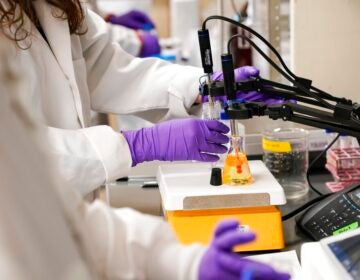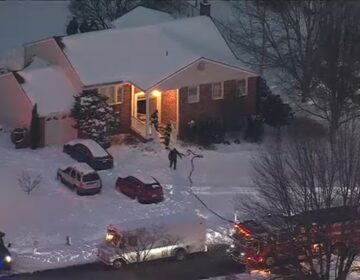Bucks County residents are fighting a youth camp development proposal near wetlands
In addition to concerns about traffic and increased noise, residents say they worry development might impact the environment.
Listen 4:50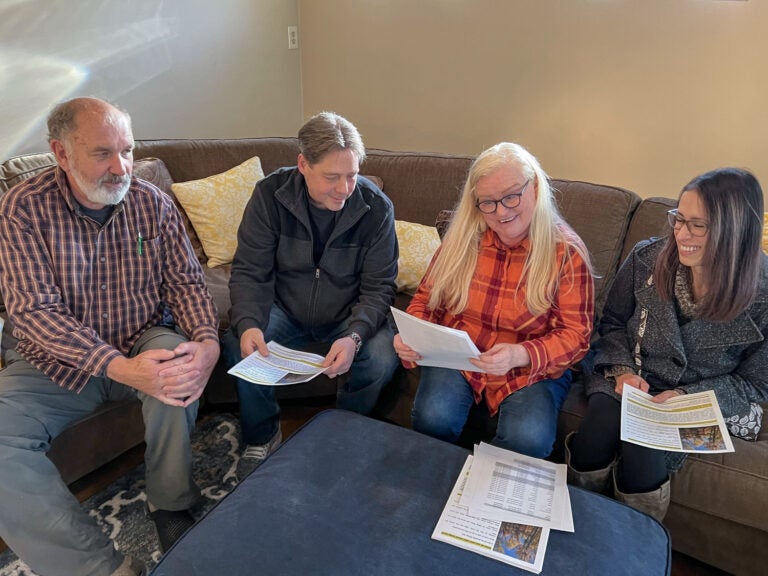
Carla Sessions (second from right) and her neighbors have been fighting against a proposal to develop athletic fields and buildings on Haycock Camping Ministries. (Zoë Read/WHYY)
From Delco to Chesco and Montco to Bucks, what about life in Philly’s suburbs do you want WHYY News to cover? Let us know!
Carla and Pat Sessions have lived in the rural wooded town of Kintnersville, Pennsylvania for almost 20 years. They say they enjoy everything nature has to offer in this remote part of Bucks County, where residents drive about 10 miles to the nearest supermarket.
Most of the houses that line the narrow roads of Kintnersville were built on several acres of land, a good distance from nearby properties. Most people keep to themselves, Carla Sessions said.
“We’re not real social,” she said. “Everyone respects everyone’s privacy and minds their own business.”
But the societal norm changed last summer when a few neighbors met at the Sessions’ home to voice concerns about Haycock Camping Ministries, and its plan to build a number of new facilities on its 184-acre property — tripling the number of young campers they serve.
The tax-exempt nonprofit, which opened in the 1960s, offers day and overnight youth programs and activities, such as kayaking, wall climbing and riflery. The camp also rents its lodging and facilities to the general community.
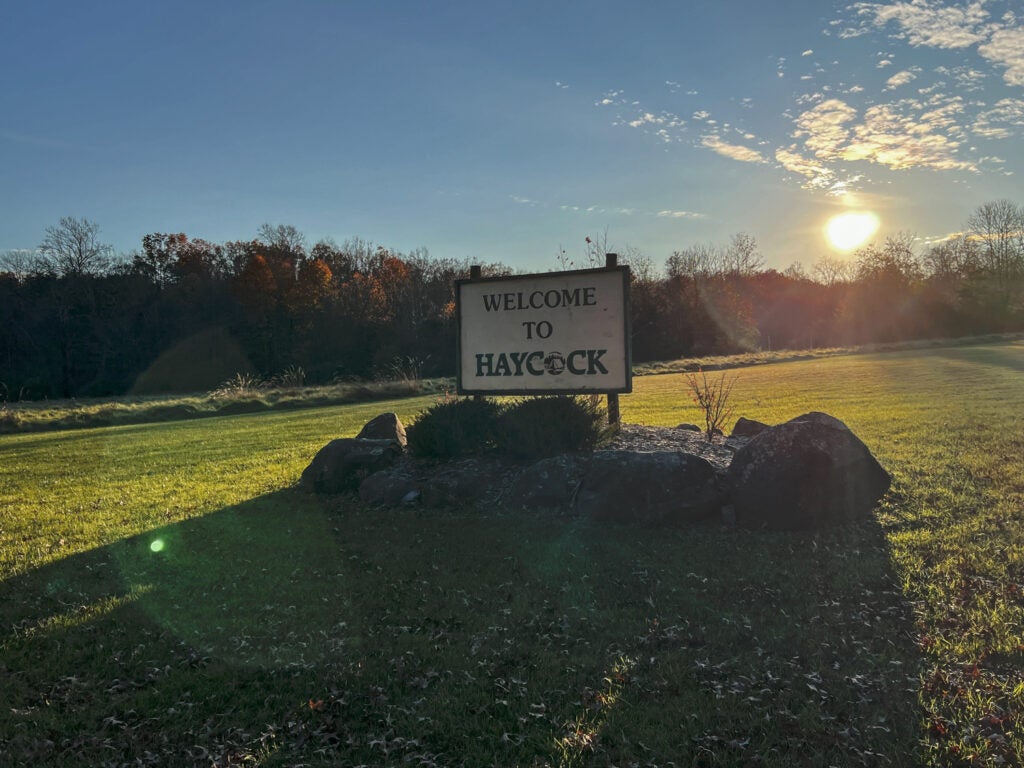
The Sessions say Haycock have been friendly neighbors for years. However, residents say they’re bothered by increasing loud gunshots they believe are from the camp’s ranges. Members of the public are able to rent the ranges, and bring their own guns, something that worries Sessions and her neighbors.
Haycock now wants to expand its buildings and sewage treatment facilities, and construct athletic fields, a basketball court, a gymnasium, and a new shooting range.
In addition to concerns about traffic and increased noise, residents say they worry development might impact the environment. The site is home to both woodlands and wetlands, and several waterways run through the camp property.
“The current proposal is going to result in way too many people, way too much water usage, too much sewage, too much noise,” said Quentin Brown, who has lived next to the camp for more than 25 years. “It’s just way over the top for the amount of development that’s typically allowed on any of the properties in this area.”
The camp, which collected close to $1 million in revenue in 2022, must receive land use approval from the township’s Board of Supervisors. Township officials have held hearings on the matter since September, and could soon decide whether to approve the plan, and if so, whether to impose any stipulations.
The Sessions’ and their neighbors, once strangers, have united against the proposal — collecting more than 140 petition signatures, and splitting the cost of an attorney to help block the development.
“[The residents] all have a real concern for the environment and free nature,” Carla Sessions said. “A lot of them care deeply about wildlife and habitat and preserving the beautiful things that are in here.”
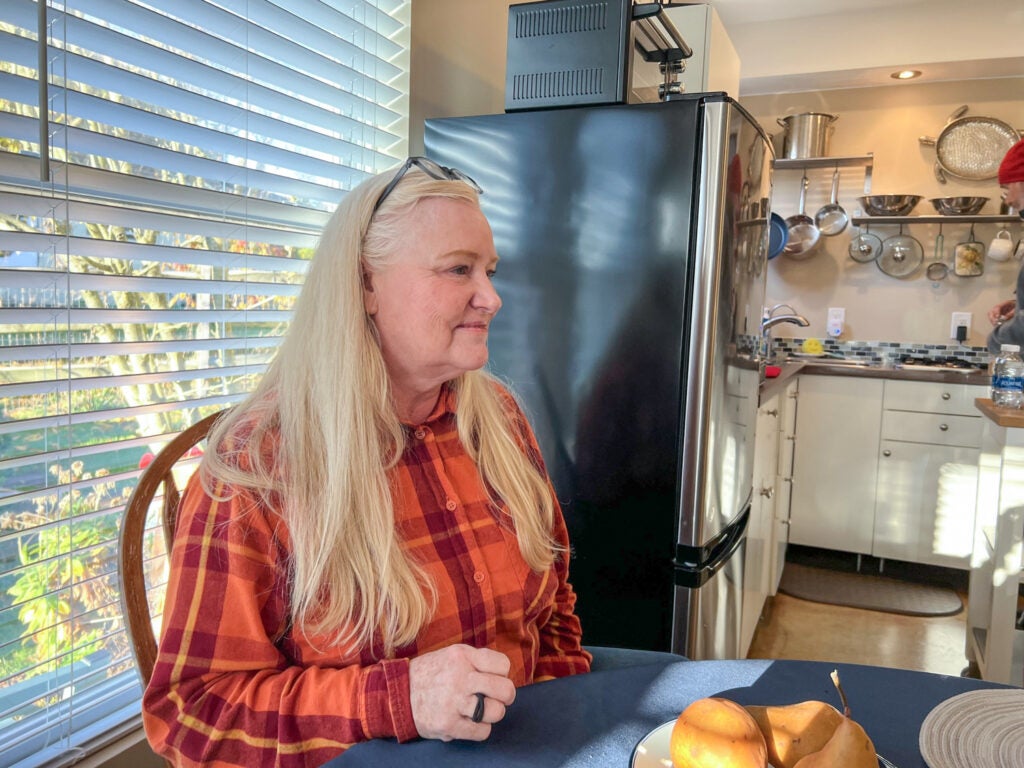
Haycock’s executive director David Stiansen said he understands the residents’ concerns.
“I lived here for 11 years. So these are a lot of people that I know well,” he said. “We’re listening, and this is just the beginning of the process.”
Stiansen said the development would not only continue the camp’s mission of “growing boys into Godly men,” but also expand its reach into the community. He said Haycock would like to make its athletic facilities available to community sports groups to fill a void in athletic opportunities in the area.
“I’ve lived here a while and my kids have all gone to school here and they’re still currently in school,” he said. “There is not a whole lot of support system outside of the school buildings.”
As for the concern about the gun range, Stiansen said shooting activities only happen in the daytime, and only part of the year. He said Haycock follows strict policies, but could not elaborate on what the policies are.
Growing environmental concerns
Judy Popivchak has operated her small farm, which adjoins Haycock, for more than 50 years. She said she has fond memories of the camp, which often invited her and other community members to banquets and other functions.
“It was more friendly, and it was more down-to-earth, and it was more like campfires and overnight stays in little cabins,” Popivchak said.
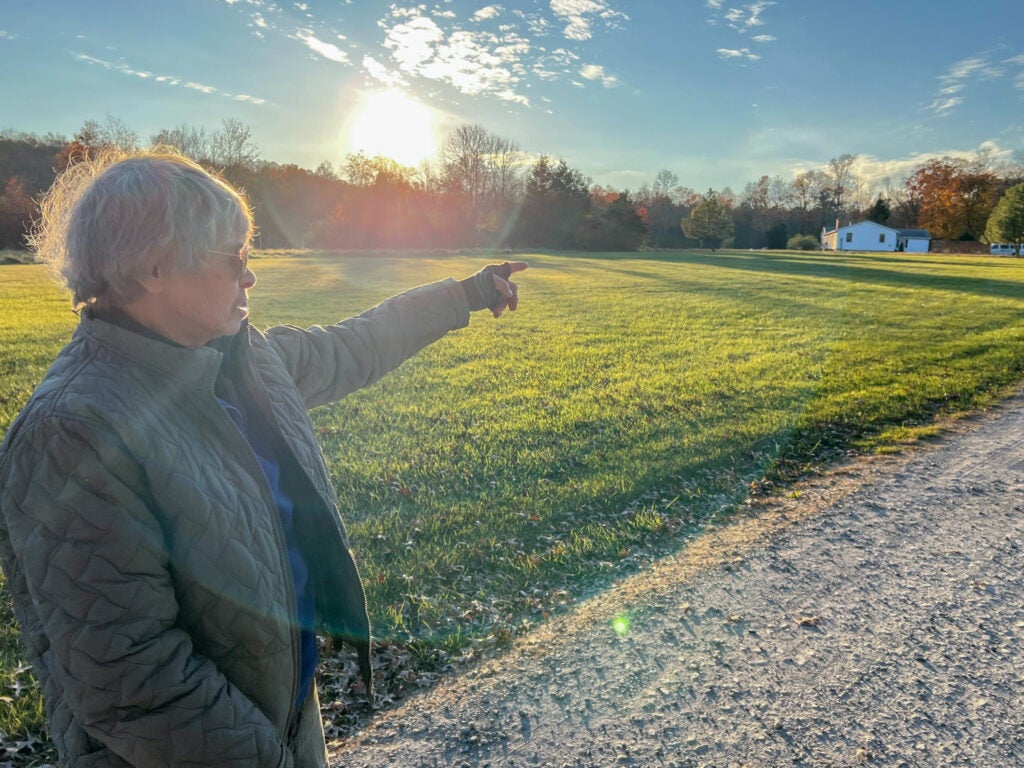
But the farmer said she believes Haycock’s priorities have changed. Popivchak said camp officials offered to pay her thousands of dollars in exchange for her land after she dies, but she refused.
She and other residents say they’re concerned about the impact development could have on traffic, and local wildlife. The federally threatened bog turtle, and the endangered long-eared bat, have been reported in the general area.
There are several waterways surrounding the camp, including Haycock Creek. The creek, which is part of the Delaware River watershed, connects to Lake Nockamixon. The largest lake in the county is home to boating and fishing.
Residents who oppose the development plan are concerned how these waterways might be impacted by runoff from construction, or leakage from the camp’s expanded sewage treatment system. Popivchak said there have been issues with the current treatment system.
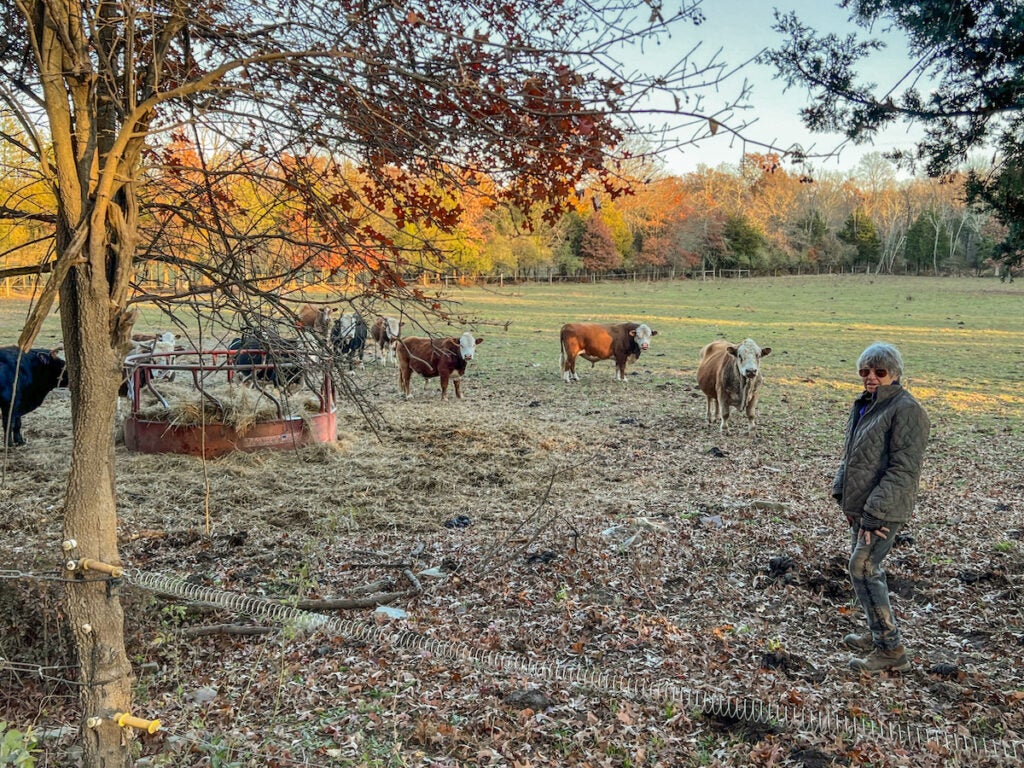
“It seems like certain times I smell [the camp’s sewage]. And of course, it is not a pleasant smell. And I mean, like, what can I do about it? I have to smell it,” Popivchak said. “And it doesn’t seem right that they should increase size, and then the odor will be increased.”
Stiansen said the smell was due to a failure with the system, and has since been fixed. He said Haycock will follow environmental laws and stormwater and sewage requirements, and plans to buffer any potential impacts.
“We know we’re going to have to go through land development on each of these projects,” he said. “It’s not getting around any studies — whether it’s traffic impact, water impact, any endangered species studies, all that stuff. We know we’re gonna have to do all that.”
Though a recent Supreme Court ruling reduced federal protections for wetlands, Pennsylvania state law offers larger protections to such bodies of water. Projects that could impact wetlands and waterways must comply with the Pennsylvania Clean Streams law.
Andy Cole, a professor of landscape architecture at Penn State University, said runoff from development can impact wetlands and habitats.
“Most of the obvious risks come from the construction phase. The less obvious risks are if the septic system doesn’t work, or if there’s runoff from roads or parking lots that you don’t necessarily see but can get into the groundwater and get into the wetlands,” he said.
However, he adds that these impacts can be mitigated if planned carefully.
“A well thought out, well-planned, considerate design can allow us to both develop and maintain the natural resources around us —- if it’s well thought out, and considered, and monitored to make sure that impacts haven’t occurred,” Cole said.
Attorneys representing Haycock and community members are expected to give their closing remarks during a township hearing Tuesday evening. Sessions said if the Township allows the camp to expand it would be “sad for the environment and for the people here.”
“But at the same time, I feel good that we’re doing everything that we possibly can to make a difference,” she said.
WHYY is your source for fact-based, in-depth journalism and information. As a nonprofit organization, we rely on financial support from readers like you. Please give today.




